The end of the year is upon us and while you may already have created your website budget, it’s not too late to do some moving around. We talk to a lot of prospects every single day that have very little to no budget for website improvements on a monthly or annual basis. Yet these same businesses commonly report their website as their single best source of leads for their sales team. Imagine that. It’s a little like being a race car driver for 20 years only to roll up to the biggest race of your life in a minivan. We hate to be the ones to say it, but… ::whisper:: I don’t think it’s gonna get you to the finish line, friend.
We are persistently hammering home the idea that having a fast-loading, flexible website that optimizes conversion and puts the right information in front of your audience, but we’re having the same conversations over and over again.
Budgets are budgets and while we haven’t mastered the development of the money manufacturing machine (we’re still working on a robot for the shower that delivers you pizza because priorities), we do know that most businesses understand the simple concept of ROI. And most marketers understand that their website is a critical and ongoing way to get more of it.
In fact, 36% of survey respondents put their top marketing channel as their website/blog in the HubSpot 2022 State of Inbound Marketing Report. It was the second biggest marketing channel behind social media.
All we want for Christmas is for you to get real with yourself on how critical investing in an ongoing strategy surrounding your website is (well, besides shower pizza, of course). That said - let’s break down 5 things we want you to consider adding to your website budget for 2023.
- adopt continuous improvement
- optimize page speed
- switch to a sustainable website platform
- organize your content better
- add more back-end features and more flexible modules
Adopting continuous improvement
If you’re already ahead of the game and have a set budget for certain website projects for 2023, we’re pretty proud of you, because most businesses don’t even set aside the budget to redesign their website. Rather than spending tens of thousands or hundreds of thousands of dollars on redesigning your website every few years, create a smaller, more manageable budget that allows you to continuously add new modules and features on your website. By adopting the idea of continuous improvement over time, you can do all of the following:
- allocate a predictable monthly budget
- work reliably with a skilled developer
- improve your website on an ongoing basis to optimize for conversions
- add back end functionality inside your website interface to help your marketing team upload and create content more effectively.
- creating workflow automations to free up your task time
- generate reports to help you better understand data trends over time
- refine navigation or resource center filters to better organize your content.
According to HubSpot’s 2022 Web Traffic & Analytics Report (we found it interesting that more website analytics data didn’t make the cut of the State of Inbound Report) 58% of website analysts indicated that sales, leads and conversion rates were the most important metrics in assessing website performance - and yet, few companies create a strategy and budget item to strategically improve their website to optimize these things. While website content, optimization efforts, compelling images and CTAs go a long way to improve conversions — small changes to how filters work, the location of a simple button, the functionality of a website’s navigation and so much more directly influence conversion rates.
Related: HubSpot CMS Development - The Continuous Improvement Model
Optimizing page speed
Recently a website project came to us that was launched and completed by another developer, but the resource center took more than 10 seconds to load, which annihilated conversion rates and sent their bounce rates for their most important content through the roof. The resource center was using an external cloud server that needed to be accessed on every page load rather than a native HubSpot database. We changed the configuration and assisted in media resizing and BOOM - overnight they experienced a significant load speed change. Now rather than seconds, the resource center takes only milliseconds to load, which most marketers understand is absolutely critical when it comes to conversion rates.
It’s so easy to finish up a website and just lean on what you have. “If it ain’t broke,” am I right? But sometimes what we consider to be working is actually seriously handicapping us. That minivan at the race you’re trying to win *works*, right? But it’s not exactly going to break any track records for speed.
If your website, resource center or blog is taking more than a couple seconds to load, you should invest in updates and optimization to help bring that number down, because it will do incredible things for your conversion rates.
Related: Page Speed Optimization - 5 Factors Bogging Down Your Website
Switching to a sustainable platform
Adopting a mindset of continuous website improvement and growth driven design is only as easy as your website platform and the framework you’ve built it from. Adding on features and functionality in Wordpress may mean having to piecemeal plugins and result in a bloated website that runs more slowly. If you’re taking a more long term approach to your website, you’ll want to build on a framework that allows for these types of improvements.
We primarily work in HubSpot and have found it not only super flexible for adding new modules, but secure and fast. It’s easy to add and remove functionality and while we do recommend that you consult your developer prior to purchasing a theme, there are a lot of great options that are well-vetted by HubSpot in the theme marketplace. Custom builds allow for more flexibility, notably so, again, contacting a skilled developer before you make an investment in HubSpot CMS is pretty critical.
Related: Signs You’ve Outgrown Wordpress CMS
Better content organization
We’re a little obsessed with navigation and we personally believe your navigation structure will make or break your conversion rate and other important website statistics like time on site and pages viewed. We’re also huge fans of proactive planning, which is why we’ve dedicated so much time to geeking out on mega menus. We believe that your mega menu should be well-conceived and strategized and not just a way to inundate your audience with everything on your website. By organizing strategically according to the buyer’s journey, your highest converting website content and putting most frequently viewed pages front and center, you’ll do so much for the user experience on your site. Rather than your most valuable content being buried in your landing pages, why not place some directly in your menu?
Your goal as a business should be to make your website easy to navigate while also providing your prospects with the critical information that they’re looking for. Organizing your pillar pages, menu navigation and website in a way that flows properly and coincides with the buyers’ journey will set you and your website prospects up for success.
Back end features and flexible modules.
There’s nothing worse than a website that you’re constantly having to piecemeal and hack to accomplish the simple goals that you have when it comes to adding content. It’s a frustration we hear come from prospect after prospect, “The interface is just kinda cumbersome” or “We just want to do this one small thing, but the feature isn’t there.” The age of not having full control over your website is over - particularly if you make a move over to HubSpot CMS.
HubSpot CMS might be a decent investment, but it’s a really great way to ensure long term scalability in your website. Take a look at what they have to say about their content management system. Considering our founder built one of the very first websites on HubSpot CMS, we can definitely attest to how it has grown and improved over the years. HubSpot is a platform committed to scalable solutions and the flexibility and power for marketers when partnered with the right developer is amazing.
Every year you probably create big goals surrounding your website, lead generation, conversions and sales. Every year you probably encounter huge obstacles with your website. Make this the year that you truly allocate and plan proactively to make sure your website services your needs and can grow with your goals in the long term. Let’s get to the end of next year and look back proud at what we’ve accomplished.
Cheers to a new approach to your website *and* sales growth when we put our budget in the right places.
What are your website goals in 2023? Let us know in the comments.





